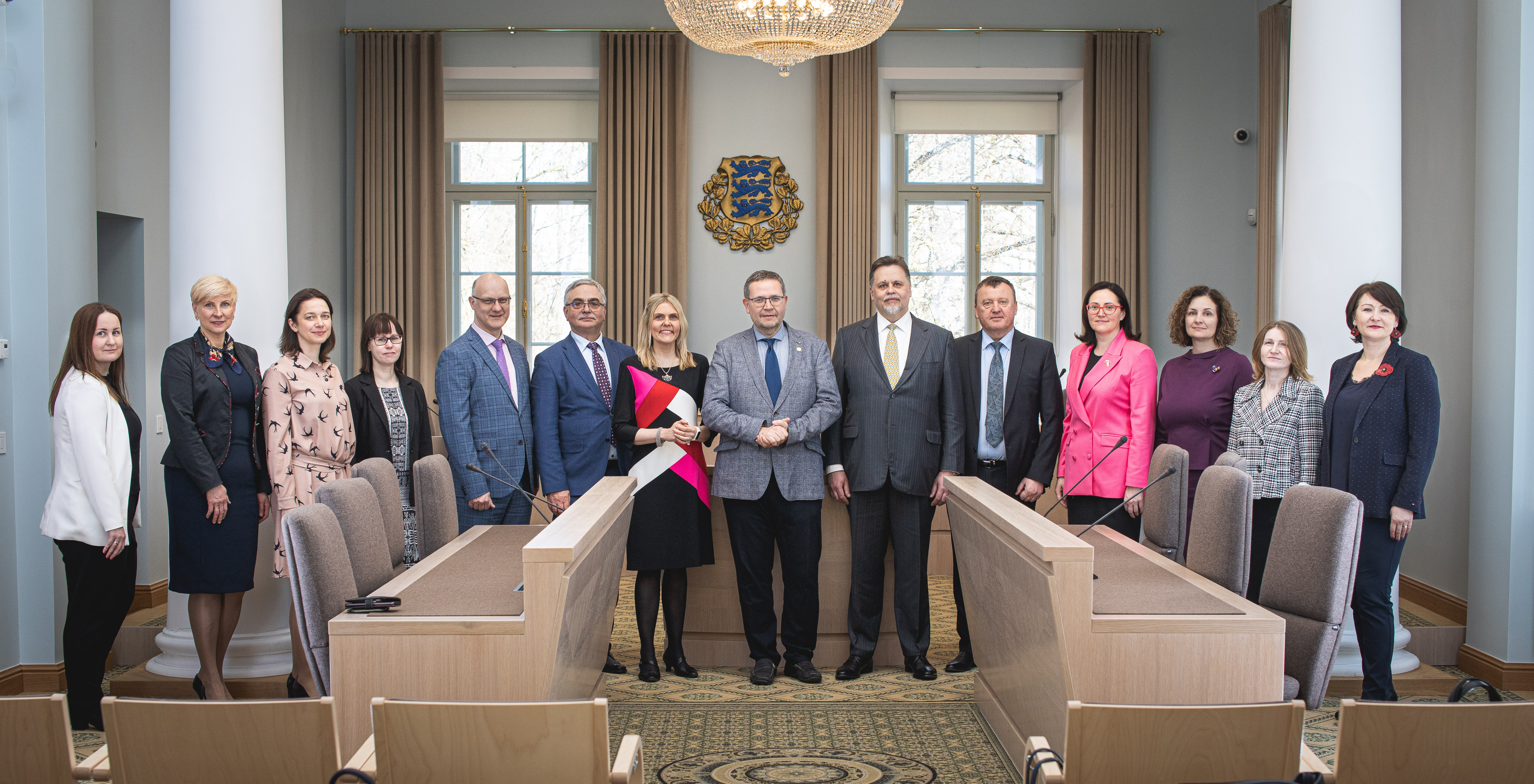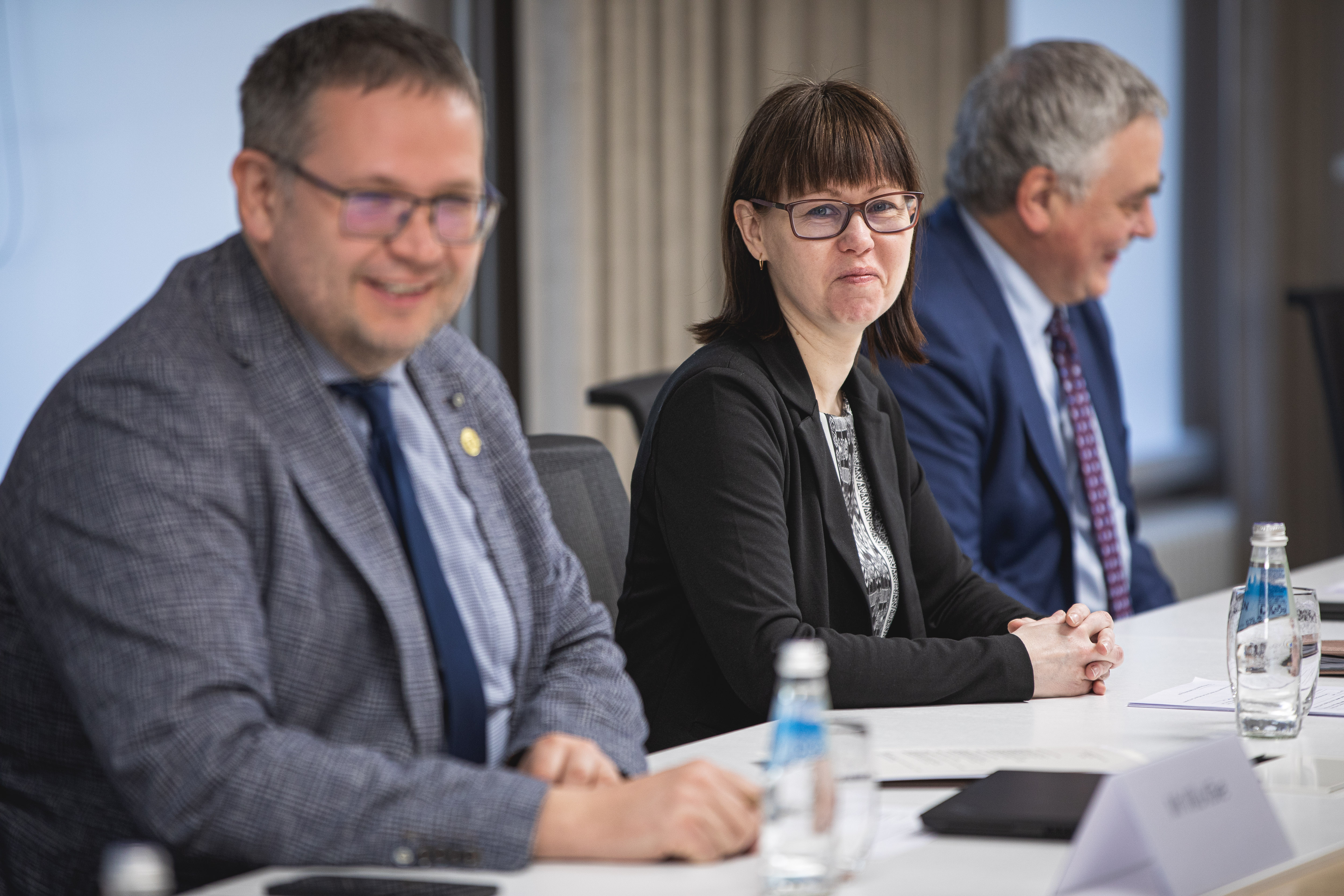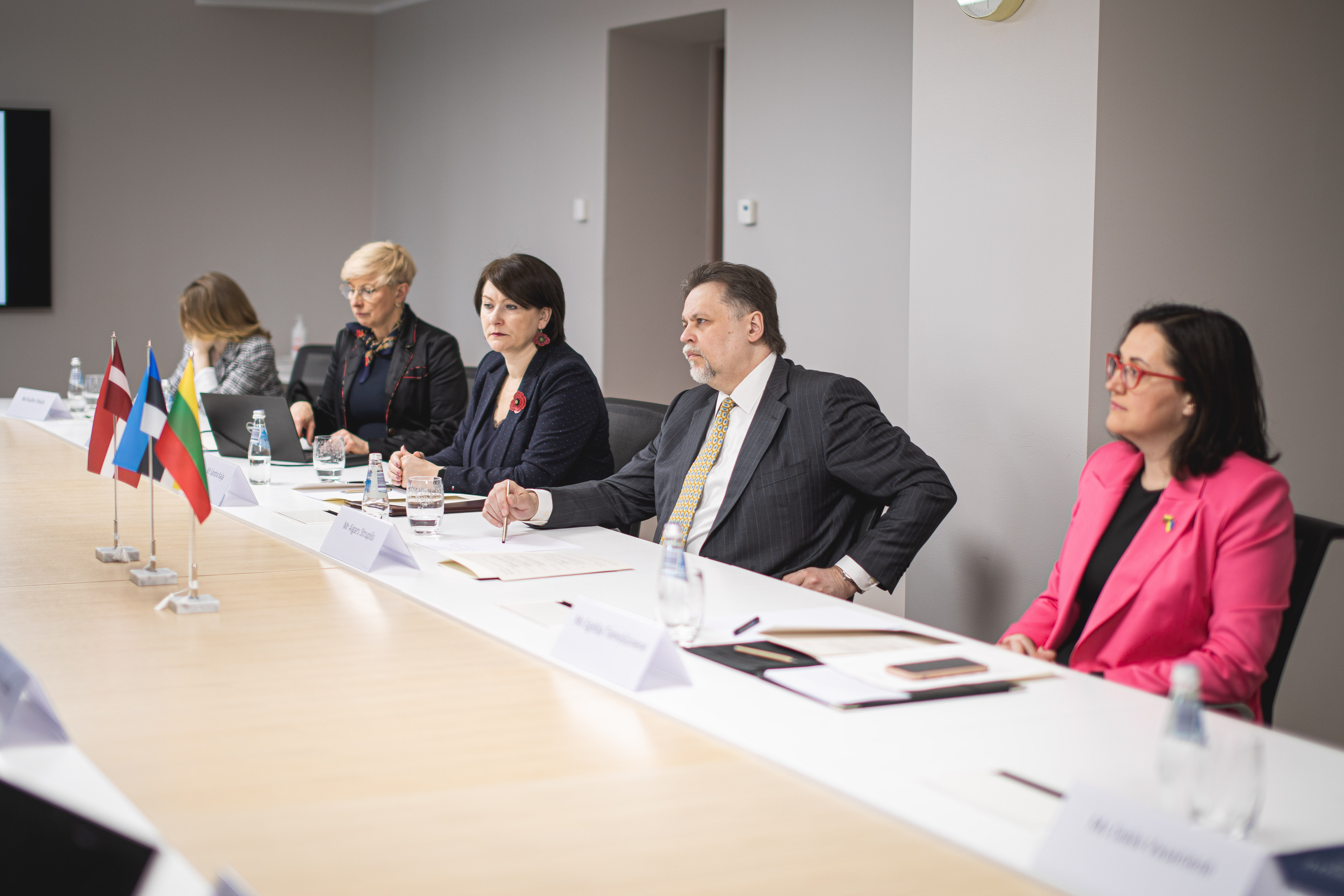 Riigikohus on Eesti Vabariigi kõrgeim kohus.
Riigikohus on Eesti Vabariigi kõrgeim kohus.
Põhiseaduse kohaselt on Riigikohus kassatsioonikohus ja
põhiseaduslikkuse järelevalve kohus. Riigikohtu pädevus
on sätestatud kohtute seaduses. 
Primary tabs
Meeting of the Supreme Courts of the Baltic States in Tartu
The Supreme Court of Estonia hosted representatives of the Supreme Courts of Latvia and Lithuania in Tartu from 27 to 29 April 2022.
This was a traditional trilateral meeting to share best practices. Estonian justices discussed with their Latvian and Lithuanian counterparts recent legal issues, many of which have a pan-European and, more broadly, international dimension – whether they concern the prevention of money laundering, the use of electronic communications data in proceedings or the problems related to the corona pandemic.
Villu Kõve, Chief Justice of the Supreme Court of Estonia, noted that a common theme for the courts of all three Baltic States is the continuation of justice in times of crisis. "At the beginning of this year, it seemed that the pandemic was receding and the courts could quietly get back to their daily business, but by February it was clear that a new and very different crisis plan was needed – how to organize the courts in times of war."
"Against the background of these crises, Estonian courts are facing a generational change, which means that we need to pay more and more attention to finding new judges and ensuring the quality of legal education," Kõve added.
In his presentation, Peeter Jerofejev, a member of the Civil Chamber of the Supreme Court of Estonia, introduced court rulings on the prevention of money laundering, in particular on the rights and obligations of banks in dealing with clients suspected of money laundering. He also spoke about the problems of identifying the authors of anonymous comments that are defamatory and damaging to reputation.
The Chairman of the Criminal Chamber, Saale Laos, gave an overview of the recurring legal issues in the chamber's rulings in recent years, including the right of self-defence, the assessment of the credibility of witnesses' testimonies, etc. In addition, she spoke about the impact of "modern-day" issues on criminal proceedings, such as the rights of the accused in criminal proceedings during a pandemic and the use of electronic communications as evidence.




